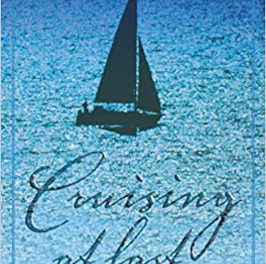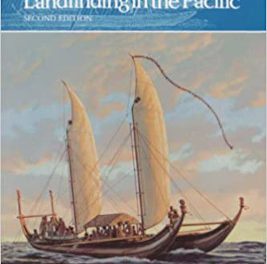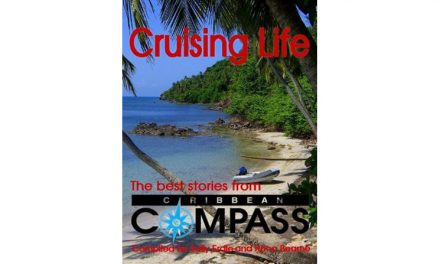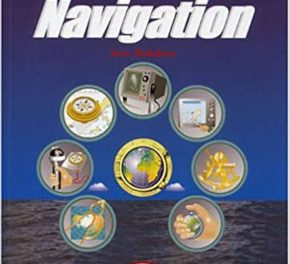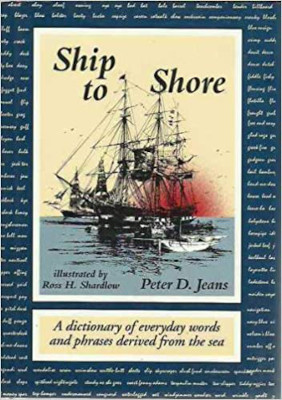
It seems fairly logical that words like “launch,” “moonlighting,” and even “nausea” (more about this one later) would have nautical origins. But what about “billboard,” “flimsy,” or “ringleader”? Those words and many other words and phrases that are regularly used by English-speaking sailors and landlubbers alike also originated on or near the sea. “Ringleader,” for example, came from the “round robin” concept, meaning a “petition or protest written in circular form so that no particular signature heads the list and therefore no one person can be singled out as a ringleader . . . originally used by sailors when urging a formal protest or claim on their superior officers.”
Ship to Shore’s author, Peter Jeans, is an English teacher and sailor who has an abiding interest in history, which is what makes this book far more than just a dictionary. It’s a fun read as well as a wonderful resource and would make a great gift for any sailor or even a non-sailor who is interested in nautical history, etymology, or trivia. The author is clearly passionate about words and all things nautical. It is easy to tell that he enjoyed doing the research and writing this book.
The entries for each word often give more information than is offered in an ordinary dictionary. You may already know that the word nausea came from the Greek nausia, seasickness. But where else are you going to learn that when “nausea is combined with a drunken headache, the resulting condition is nicely expressed by the word crapulous.”
Ship to Shore: A Dictionary of Everyday Words and Phrases Derived from the Sea by Peter D. Jeans (International Marine/McGraw -Hill, 2004; 433 pages)

